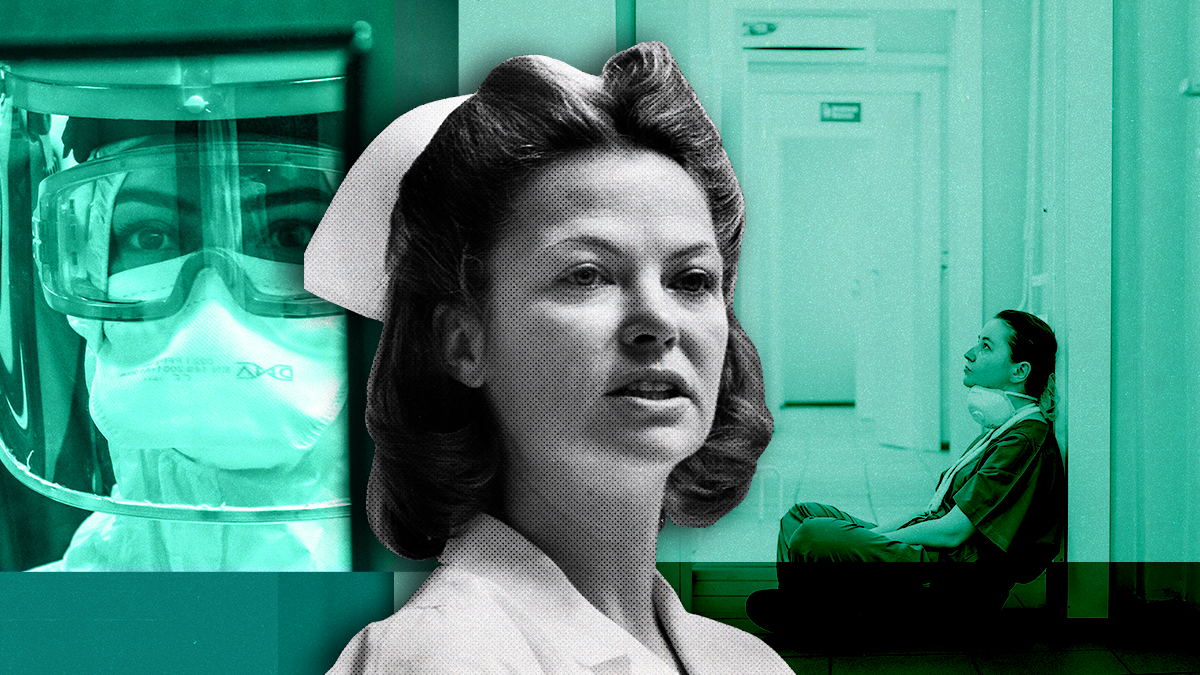When I first read the new Gallup poll about Americans’ trust in various professions, three people immediately came to mind: Jack Nicholson, Kathy Bates, and Ol’ Dirty Bastard.
I’ll explain in a moment, but first let me tell you about the survey, which asks US voters to evaluate the honesty and ethics of about two dozen trades.
This year’s edition shows darkening American views of just about every single profession – from shrinks to stockbrokers, clergy to chiropractors.
Even usually well-regarded professions like doctors, pharmacists, and police officers suffered drops of nearly 10 points in recent years. And for the first time, members of Congress are now in dead last place, seen as highly ethical by just 6% of Americans. That’s even worse than those lemon-slinging perennial bottom-dwellers: car salespeople.
But what really jumped out at me was the nurses.
The good news is that they’re still, for two decades running now, the most trusted profession. Close to 80% of Americans see them as highly ethical.
The bad news is, the broader crisis of trust in experts and professionals in America is so severe that even nurses have taken a hit of six points since 2019. Yes, since 2019. The same 2019 that gave its name to a pandemic that taxed medical professionals so severely that more than 100,000 nurses left their jobs due to COVID-19 burnout.
It’s hard to imagine the kind of person who wouldn’t think of nurses in a positive light. Jack Nicholson in the care of Nurse Ratched? Fine. Whatever that guy’s name is who is getting hobbled by Kathy Bates’ in “Misery,” OK. Ol’ Dirty Bastard, whose 1992 line on the Wu-Tang debut about “sticking pins in your head like a nurse” echoes a diabolical Nation of Islam story about the origin of the races? I get it.
In fairness, the poll was conducted in the wake of news about that nurse in Pennsylvania who killed people with insulin shots, or the one at Yale who stole IVF patients’ pain meds. But let’s be honest: There will always be a few Annie Wilkeses for every thousand Flo Nightingales.
And here’s the thing, America – you really need to trust nurses. Why? Because America is a rapidly graying country that really needs nurses.
What better reminder of this than this year’s presidential election, in which there will be only two choices: elect the oldest president in history or elect the second oldest president in history.
But it’s not just our presidents who are getting older. When people say “40 is the new 30,” it’s no metaphor. Since 1980, the median age in America has actually risen by a full decade to 40, the highest in American history.
Over the next three decades, the population of Americans over 65 will rise by nearly 50%, taking the silver-haired set from 17% to 23% of the population overall, according to the Population Reference Bureau.
That’s a time bomb for entitlement programs like social security, but it’s also an alarm bell for nurses in hospitals and homes who will have to care for an aging America.
Are there enough nurses on call? The US Bureau of Labor says 275,000 additional nurses will need to be trained and hired between now and 2030.
Insufficient funding for nurse education, as well as burnout from punishing work shifts at cost-conscious hospitals, are making it harder to find those people.
An outdated and broken immigration system isn’t helping – 15% of nurses are foreigners, but last year the State Department had to cap new visa applications because decades-old quotas had been reached.
And for the techno-optimists in the crowd, this doesn’t seem like a problem that automation can solve. Nurses are like barbers, physical therapists, teachers, or prostitutes: professionals with unique skills and a personal touch that absolutely no sane person wants replaced by robots. Polls show that 80% of Americans agree – nurses are safe.
Which is a good thing. After all, would you trust a robot to change your bedpan?
